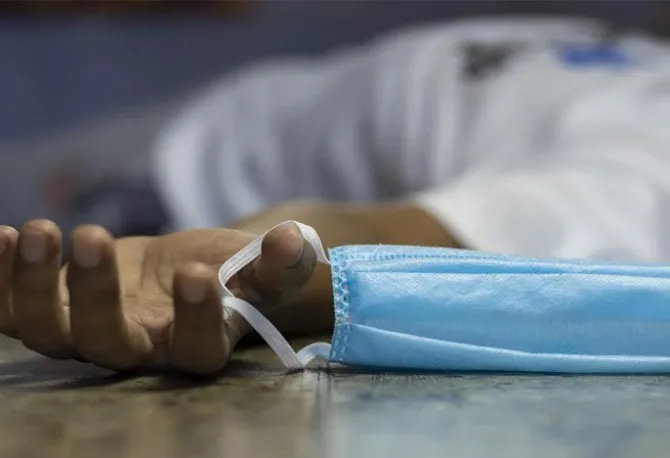
Since the onset of the pandemic, there has been considerable public interest and anxiety regarding sudden deaths in relatively young adults. Some individuals have speculated that this is a recent phenomenon and have even linked it to the COVID-19 vaccination. Given the novelty of COVID-19 and its vaccines, these theories have gained traction. This article provides clarity on the matter, summarising relevant scientific literature prior to the pandemic and discussing the latest research by the Indian Council of Medical Research (ICMR) from a public health perspective.
Why are young adults dying suddenly?
While it is true that deaths occur more commonly among older people, it must be kept in mind that healthy young people can also die suddenly. In such instances, the true cause of death is only revealed by autopsy studies. In the past, such studies have been conducted on young adults who died suddenly without prior warning or obvious cause.
These studies found that sudden deaths among the youngest adults occur from multiple causes—surprisingly, not all are heart-related. About 5-10 percent remain unexplained even after autopsy; these are frequently attributed to abnormal heart rhythms (arrhythmias). Other causes in the Indian context include infections, stroke, and gastrointestinal and respiratory illnesses. This was revealed in a 2011 autopsy study that specifically looked at sudden deaths among people in India between the ages of 18-35 years. However, among older age groups, a greater proportion of sudden deaths are due to heart-related causes. A 2002 autopsy study published in India, which examined the cause of sudden death occurring between the ages of 23-50, showed that 77 percent were due to coronary heart disease; other causes being aortoarteritis, cardiomyopathy, and stroke.
The true cause of death is only revealed by autopsy studies. In the past, such studies have been conducted on young adults who died suddenly without prior warning or obvious cause.
What are the chances of a heart attack among young adults in India?
Half of the heart attacks among South Asians occur below the age of 52 years. This is partly because, unlike Western countries, the population of India is relatively young with an average (median) age of only 28. This means that half the population of India is below 28, which translates to a very large number of young individuals.
A landmark paper published in 2011 observed death patterns in several villages in Kerala over five years. After analysing 4,271 deaths in a population of 1,61,942 people, the authors found that among younger adults of age 35-44 years, the yearly odds of dying from coronary artery disease was 59 per 100,000 persons among men, and 17 per 100,000 among women. This amounts to a death risk of 1:1,700 every year among men in that age group. When applied to a large population, the total number of deaths can be considerable, especially as traditional coronary risk factors are common in the subcontinent. This risk increases with advancing age.
Implication of COVID vaccination
Over the years, it has become clear that COVID-19 is not just a respiratory illness or a common cold, and can affect the inner lining of blood vessels. In the early phase of the pandemic, deaths from COVID-19 occurred as a result of pneumonia, lung clots, heart disease, myocarditis, sepsis, kidney failure, and stroke.
The study found a remarkably high death rate of 6.5 percent over a year. Specific risk factors included age-specific reasons and pre-existing medical conditions.
A recent study by ICMR observed the course of 14,419 people who were discharged from hospitals across India after surviving COVID-19. The study found a remarkably high death rate of 6.5 percent over a year. Specific risk factors included age-specific reasons and pre-existing medical conditions. The main causes of these delayed deaths were heart and lung disease. The study reported that people who were vaccinated were less likely to die over the subsequent one-year period when compared to those who were unvaccinated.
What did the latest ICMR study on sudden deaths show?
Another study from ICMR looked at 729 individuals between the age of 18-45 who died suddenly despite being in “good health”. Deaths that occurred between 1 October 2021 and 31 March 2023 were studied, which basically included the tail end of the Delta period—a period marked by the prevalence of the Delta variant of COVID-19—transitioning into the Omicron era. Unlike the previous ICMR study, this research did not selectively look at people who had COVID-19, the task being specifically to study sudden deaths.
The 729 people who died were compared with 2,916 controls of comparable age, gender, and locality. The aim was to find out if there were specific risk factors among those who died suddenly, compared to other people within the same demographic group. Risk factors identified were smoking, binge drinking, and intense physical activity shortly before death. In addition, those who had been hospitalised from COVID-19, people who had a history of sudden death within the family, and unvaccinated individuals were also more likely to suffer a sudden death.
Deaths that occurred between 1 October 2021 and 31 March 2023 were studied, which basically included the tail end of the Delta period—a period marked by the prevalence of the Delta variant of COVID-19—transitioning into the Omicron era.
The study states that vaccination did not increase the risk of sudden death. On the contrary, the authors report that vaccination reduced the risk of sudden death among adults.
What does all this mean?
The study disproves commonly-heard allegations that young people are dying as a result of COVID-19 vaccination. Such assertions are frequently forwarded on social media and tend to recirculate every time a prominent person passes away suddenly, regardless of the cause.
The study also reconfirms what was already known about heart attacks among younger adults in developing countries: Tobacco and alcohol use are recognised risk factors. This was originally shown in the INTERHEART study published in The Lancet.
How to reduce the risk of sudden death among young people?
- Avoid tobacco use and binge drinking of alcohol.
- If there are symptoms of chest pain or shortness of breath, consult a doctor to determine the cause, and proceed accordingly.
- Regular exercise along with a balanced diet and active lifestyle promotes long-term health.
- Those with a family history of heart disease occurring at a young age might need additional tests, and must check with their doctor.
- Control of modifiable risk factors such as obesity, blood sugar, BP and LDL cholesterol level will reduce the overall risk of heart attacks.
- The latest ICMR study shows there is no need to worry that being vaccinated increases the risk of sudden death. On the other hand, COVID-19 on its own increases the risk of multiple health problems in the future. These include Long COVID—having multiple lingering symptoms that can last for weeks or months after infection—as well as increased mortality, particularly among those who require hospitalisation. Therefore, strategies to reduce the risk of COVID-19 will help.
Is exercise after COVID-19 dangerous?
In this context, it is important to distinguish between routine activity, regular exercise, and strenuous exercise. Routine activity includes casual walking and doing household chores. Regular exercise comprises brisk walking, light jogging, and swimming. Examples of strenuous exercise include running a half-marathon or doing intense workouts such as lifting heavy weights in the gymnasium.
Exercise is a long-term investment, and a brief interruption will not affect health.
While routine activity can be resumed early in most people who had a recent bout of COVID-19, they must be relatively cautious about resuming exercise. If the person is in good health, COVID-19 is mild, and there are no residual symptoms, regular exercise can be restarted after 7-14 days. It is best to start slow, and gradually increase over a period of weeks, carefully observing the body’s response. Exercise is a long-term investment, and a brief interruption will not affect health. Therefore, it is prudent to take a gentle and nuanced approach in this regard.
On the other hand, people with underlying health conditions, those who experience symptoms, and individuals who wish to engage in strenuous exercise after COVID-19 must check with their doctor.
The latest ICMR study has identified intense physical activity and severe COVID-19 as risk factors for sudden death in young adults. Therefore, individuals who had a severe bout of COVID-19 are advised to be more cautious while exercising. They must be particularly wary of strenuous or unaccustomed exercise. It is wise to check with one’s doctor about doing this safely.
Dr Rajeev Jayadevan is the former president of the Cochin Branch of the Indian Medical Association and Co Chairman of the National IMA COVID Task Force
The views expressed above belong to the author(s). ORF research and analyses now available on Telegram! Click here to access our curated content — blogs, longforms and interviews.




 PREV
PREV


